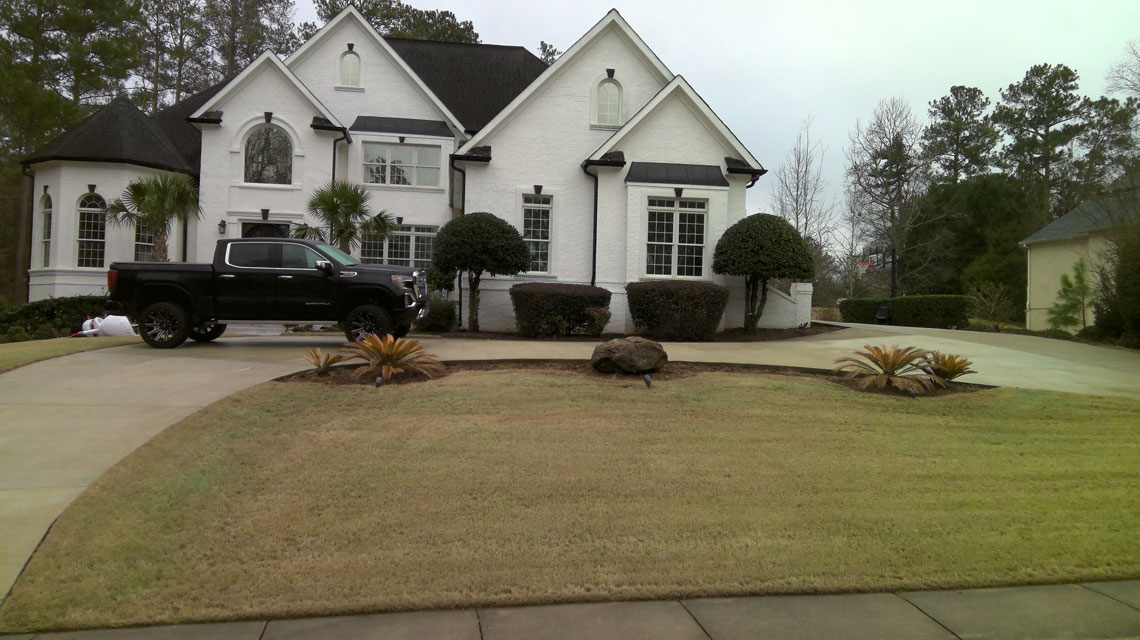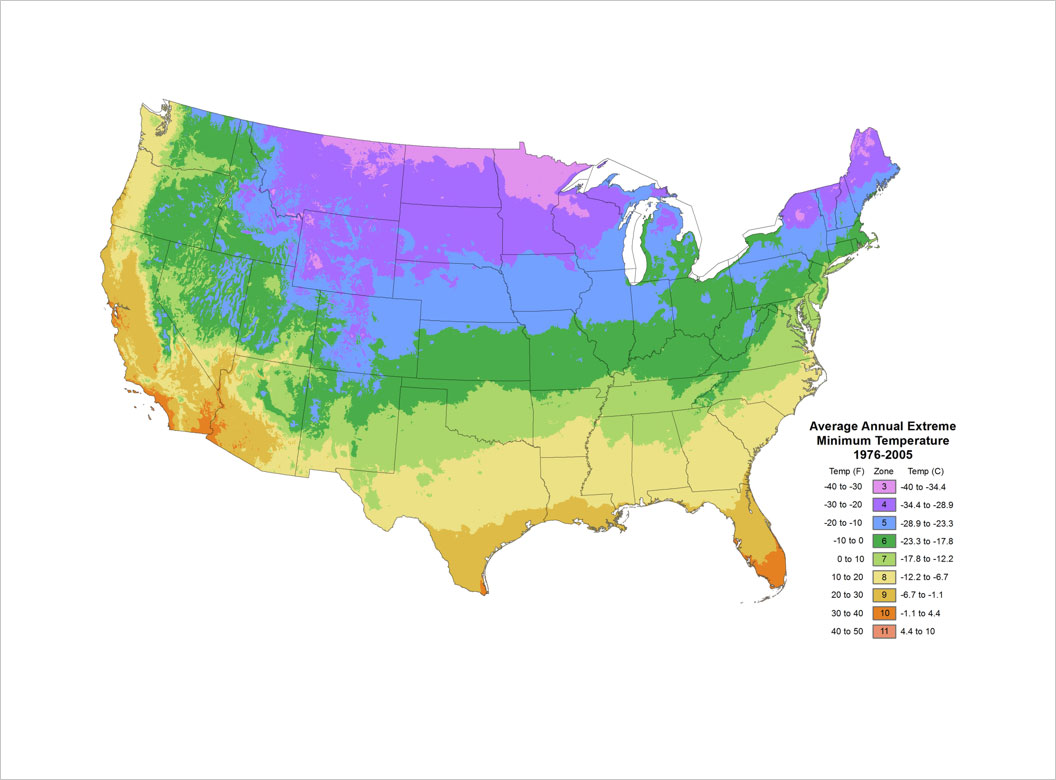
Brown and defoliated landscape plants are dotting the landscapes of Fayette and Henry County- Why did plants turn brown or lose their leaves that are supposed to be green?
Late December of 2022 saw an extremely cold few days leading up to when many sing “I’m Dreaming Of A White Christmas”. While temperatures may have produced snow if precipitation was present, it did create the coldest weather the southern US and other parts of the country has seen in decades. The few days of single digit low temperatures we saw in Newnan, Peachtree City, Fayetteville, McDonough and surrounding locales coupled with high winds created a “perfect storm” for damage to some plants.
How do I defend against this kind of damage that plants may have because of these events?
Plants commonly used in gardening and landscaping are tagged with a rating that designates its ability to survive and thrive in cold temperatures. The United States Department of Agriculture (USDA) Cold Hardiness zones are published on a map showing the ranges of plants according to their ability to withstand the normal low temperatures experienced in each area of our country. This USDA map is an excellent source when planning your garden or landscaping. In some rare events such as the one we experienced late last year, all bets are off on plant’s ability to withstand severe cold if you are using at the edge of its recommended zone, so it is a great resource when considering what to plant where.
Five questions regarding severe cold weather for south Atlanta area’s zones 7 and 8:
- What plants are good for cold weather in Georgia? For privacy plantings and screening of views smart landscape designers in Atlanta choose cold hardy plants such as Hollies, Magnolias, Cherry Laurels and other trees with track records of withstanding temperatures touching 0 degrees Fahrenheit. If you are tempted to choose something like Tea Olive, you risk of having total leaf drop and losing the function of privacy.
- Are there areas of a property to place borderline cold tender plants? Microclimate is a fancy word meaning each small pocket of space on your land can have its own small world that may be different than other parts of your property such as exposures to northeast prevailing winds. Keep cold tender plants such as Gardenias sheltered from wide open spaces or exposed corners where winter winds could turn leaves brown and defoliate them when it gets unseasonably cold. Container plants had colder root balls by not having the earth’s insulation and saw more risk of damage so keep that in mind when choosing and locating pots.
- Can I plant palm trees or other tropical plants in south Atlanta? If you like risky plants such as palm trees, choose from a few tried and true varieties such as Windmill Palm or Needle Palm that won’t bite the dust from the severe cold when you don’t cover them. There are several unfortunate examples in Fayette County and Henry County of tropical plants that won’t come back after the 2022 Christmas deep freeze.
- Can timing of pruning affect plants in extreme cold? Informed landscapers in the Atlanta Georgia area won’t prune plants later in the year as new growth won’t mature before winter sets in. Some areas of south Atlanta saw damage on plants that were pruned too late and fresh growth couldn’t get hardened off (mature) before the bad freeze.
- Should we prune plants now damaged by the severe cold? For freeze damaged plants wait until warm spring weather to prune. Pruning commonly stimulates new growth that could get hurt by late hard freezes which are harsher on plant health than what we saw in late 2022. Scratch the outside bark at tips of plant stems to see if there is still green below the bark and you may be surprised to find out that most plants are still alive just temporarily hurt and sad!
Proper siting and selection of plant materials will go a long way towards a healthy landscape no matter what cold snaps mother nature throws at us. Reach out to your local trusted Atlanta landscape design professional who has experience in severe cold and other situations for best practices on your specific property that could affect your landscape investment.

USDA Map




